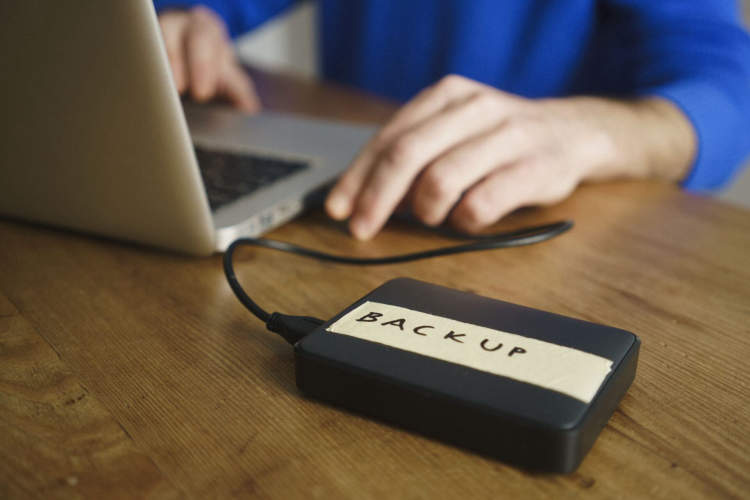Backing up your laptop data is essential to ensure that your files, documents, and important information are safe and readily accessible. In this article, we will guide you through the process of backing up your laptop data effectively, preventing the risk of data loss and ensuring peace of mind.
With the increasing reliance on digital devices, the need to have a reliable backup system in place has become more crucial than ever. Whether it’s due to hardware failure, accidental deletion, or malware attacks, losing important data can be devastating. By following the steps outlined in this article, you can safeguard your laptop data and avoid potential data disasters.
Why is backing up laptop data important?
In today’s digital age, where most of our important information and files are stored on laptops, backing up data has become crucial. Whether you use your laptop for work or personal use, losing data can lead to significant inconvenience, stress, and even financial loss. Here are some reasons why backing up laptop data is important:
- Data Loss: Laptops are vulnerable to various threats such as hardware failures, viruses, malware, and accidental deletion. Without a backup, these incidents can lead to permanent data loss.
- Protection against theft and physical damage: Laptops are prone to theft, loss, or physical damage. Having a backup ensures that your valuable data is secure, even if the device is stolen or damaged.
- Disaster recovery: Natural disasters, such as fires or floods, can destroy your laptop and all the data stored on it. With a backup, you can quickly recover your files and continue working.
- Easy migration to a new device: When you upgrade to a new laptop or switch to a different operating system, having a backup simplifies the process of transferring your data to the new device.
- Accidental file modification: It’s not uncommon to accidentally overwrite or modify an important file. Regular backups ensure that you can restore previous versions or recover deleted files.
Given the potential risks and consequences of data loss, it is crucial to regularly back up your laptop to ensure the safety and availability of your important files.
Choosing the Right Backup Method

When it comes to protecting your important data, having a reliable backup method is essential. With various options available, it can be overwhelming to determine which one suits your needs best. In this article, we will explore different backup methods and help you find the ideal solution for backing up your laptop data.
1. External Hard Drive
An external hard drive is a popular choice for backing up data. It provides a physical storage device separate from your laptop, ensuring that your files are safe even if your laptop crashes. Simply connect the external hard drive to your laptop and transfer your files regularly to keep them backed up.
2. Cloud Storage
Cloud storage offers the convenience of accessing your files from anywhere with an internet connection. Services like Dropbox, Google Drive, and OneDrive provide free or paid options for storing and backing up your data securely in the cloud. Depending on your needs and budget, you can choose a suitable plan and automatically sync your laptop files to the cloud.
3. Network Attached Storage (NAS)
If you want a backup solution that can be accessed by multiple devices on your home or office network, NAS can be a viable option. NAS devices are essentially servers that offer large storage capacities and allow you to backup and access your files wirelessly. They provide an added level of data protection by enabling RAID configurations and data redundancy.
4. Online Backup Services
Online backup services specialize in securely storing your data on remote servers. These services offer automatic backups, ensuring that your files are constantly protected. Some popular online backup services include Backblaze, Carbonite, and IDrive. Evaluate their features, pricing, and user reviews to choose the service that suits your requirements.
Regardless of the backup method you choose, it is important to set up a regular backup schedule and verify that your files are successfully backed up. Remember to keep multiple copies of essential data in different locations for added protection.
By selecting the right backup method that aligns with your needs, you can have peace of mind knowing that your laptop data is secure and easily recoverable in case of unexpected incidents.
Step-by-step guide to backing up laptop data
Backing up your laptop data is crucial to prevent loss of important files and documents. Follow these simple steps to ensure your data is safely backed up:
1. Assess your data: Before starting the backup process, determine which files and folders you need to back up. Identify the most critical data that you cannot afford to lose.
2. Choose a backup method: There are various methods to back up your laptop data. You can use an external hard drive, cloud storage services, or backup software. Select the method that suits your needs and resources.
3. External hard drive backup:
- Connect your external hard drive to your laptop.
- Open the backup software installed on your laptop.
- Select the files and folders you want to back up.
- Choose the external hard drive as the destination for the backup.
- Start the backup process and wait for it to complete.
4. Cloud storage backup:
- Sign up for a reliable and secure cloud storage service, such as Google Drive, Dropbox, or Microsoft OneDrive.
- Install the cloud storage application on your laptop.
- Configure the application and select the files and folders you want to back up.
- Choose the cloud storage as the destination for the backup.
- Start the backup process and ensure a stable internet connection.
5. Schedule regular backups: To ensure your data is always up to date, set up a schedule for automatic backups. This way, you won’t have to manually initiate every backup.
6. Test your backup: After completing the backup process, it is essential to verify that the backup is successful. Open a few files from the backup to ensure they are intact and accessible.
By following these step-by-step instructions, you can easily back up your laptop data and have peace of mind knowing your files are safe and secure.
Conclusion
Backing up your laptop data is an essential practice to ensure the safety and security of your important files and documents. It not only protects you from unexpected data loss but also gives you peace of mind knowing that your information is safe.
By following the steps mentioned in this article, you can easily create a backup of your laptop data. Remember to choose the backup method that suits your needs and preferences, whether it’s using an external hard drive, cloud storage, or backup software. Regularly updating your backups is equally important to keep your files up to date.

